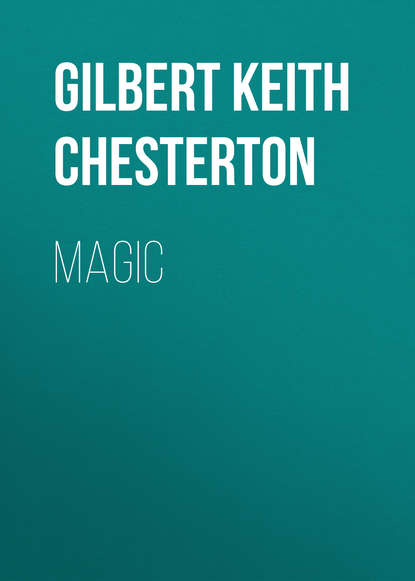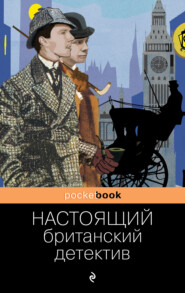По всем вопросам обращайтесь на: info@litportal.ru
(©) 2003-2025.
✖
Magic
Настройки чтения
Размер шрифта
Высота строк
Поля
Conjurer. [Sharply.] Yes. [Produces a bowl of goldfish from his tail pockets and holds it under the other's nose.] Judge for yourself.
Morris. [In monstrous excitement.] Very good! Very good! But I know how that's done – I know how that's done. You have an india-rubber cap, you know, or cover…
Conjurer. Yes.
[Goes back gloomily to his table and sits on it, picking up a pack of cards and balancing it in his hand.
Morris. Ah, most mysteries are tolerably plain if you know the apparatus. [Enter Doctor and Smith, talking with grave faces, but growing silent as they reach the group.] I guess I wish we had all the old apparatus of all the old Priests and Prophets since the beginning of the world. I guess most of the old miracles and that were a matter of just panel and wires.
Conjurer. I don't quite understand you. What old apparatus do you want so much?
Morris. [Breaking out with all the frenzy of the young free-thinker.] Well, sir, I just want that old apparatus that turned rods into snakes. I want those smart appliances, sir, that brought water out of a rock when old man Moses chose to hit it. I guess it's a pity we've lost the machinery. I would like to have those old conjurers here that called themselves Patriarchs and Prophets in your precious Bible…
Patricia. Morris, you mustn't talk like that.
Morris. Well, I don't believe in religion…
Doctor. [Aside.] Hush, hush. Nobody but women believe in religion.
Patricia. [Humorously.] I think this is a fitting opportunity to show you another ancient conjuring trick.
Doctor. Which one is that?
Patricia. The Vanishing Lady!
[Exit Patricia.
Smith. There is one part of their old apparatus I regret especially being lost.
Morris. [Still excited.] Yes!
Smith. The apparatus for writing the Book of Job.
Morris. Well, well, they didn't know everything in those old times.
Smith. No, and in those old times they knew they didn't. [Dreamily.] Where shall wisdom be found, and what is the place of understanding?
Conjurer. Somewhere in America, I believe.
Smith. [Still dreamily.] Man knoweth not the price thereof; neither is it found in the land of the living. The deep sayeth it is not in me, the sea sayeth it is not with me. Death and destruction say we have heard tell of it. God understandeth the way thereof and He knoweth the place thereof. For He looketh to the ends of the earth and seeth under the whole Heaven. But to man He hath said: Behold the fear of the Lord that is wisdom, and to depart from evil is understanding. [Turns suddenly to the Doctor.] How's that for Agnosticism, Dr. Grimthorpe? What a pity that apparatus is lost.
Morris. Well, you may just smile how you choose, I reckon. But I say the Conjurer here could be the biggest man in the big blessed centuries if he could just show us how the Holy old tricks were done. We must say this for old man Moses, that he was in advance of his time. When he did the old tricks they were new tricks. He got the pull on the public. He could do his tricks before grown men, great bearded fighting men who could win battles and sing Psalms. But this modern conjuring is all behind the times. That's why they only do it with schoolboys. There isn't a trick on that table I don't know. The whole trade's as dead as mutton; and not half so satisfying. Why he [pointing to the Conjurer] brought out a bowl of goldfish just now – an old trick that anybody could do.
Conjurer. Oh, I quite agree. The apparatus is perfectly simple. By the way, let me have a look at those goldfish of yours, will you?
Morris. [Angrily.] I'm not a paid play-actor come here to conjure. I'm not here to do stale tricks; I'm here to see through 'em. I say it's an old trick and…
Conjurer. True. But as you said, we never show it except to schoolboys.
Morris. And may I ask you, Professor Hocus Pocus, or whatever your name is, whom you are calling a schoolboy?
Conjurer. I beg your pardon. Your sister will tell you I am sometimes mistaken about children.
Morris. I forbid you to appeal to my sister.
Conjurer. That is exactly what a schoolboy would do.
Morris. [With abrupt and dangerous calm.] I am not a schoolboy, Professor. I am a quiet business man. But I tell you in the country I come from, the hand of a quiet business man goes to his hip pocket at an insult like that.
Conjurer. [Fiercely.] Let it go to his pocket! I thought the hand of a quiet business man more often went to someone else's pocket.
Morris. You…
[Puts his hand to his hip. The Doctor puts his hand on his shoulder.
Doctor. Gentlemen, I think you are both forgetting yourselves.
Conjurer. Perhaps. [His tone sinks suddenly to weariness.] I ask pardon for what I said. It was certainly in excess of the young gentleman's deserts. [Sighs.] I sometimes rather wish I could forget myself.
Morris. [Sullenly, after a pause.] Well, the entertainment's coming on; and you English don't like a scene. I reckon I'll have to bury the blamed old hatchet too.
Doctor. [With a certain dignity, his social type shining through his profession.] Mr. Carleon, you will forgive an old man, who knew your father well, if he doubts whether you are doing yourself justice in treating yourself as an American Indian, merely because you have lived in America. In my old friend Huxley's time we of the middle classes disbelieved in reason and all sorts of things. But we did believe in good manners. It is a pity if the aristocracy can't. I don't like to hear you say you are a savage and have buried a tomahawk. I would rather hear you say, as your Irish ancestors would have said, that you have sheathed your sword with the dignity proper to a gentleman.
Morris. Very well. I've sheathed my sword with the dignity proper to a gentleman.
Conjurer. And I have sheathed my sword with the dignity proper to a conjurer.
Morris. How does the Conjurer sheath a sword?
Conjurer. Swallows it.
Doctor. Then we all agree there shall be no quarrel.
Smith. May I say a word? I have a great dislike of a quarrel, for a reason quite beyond my duty to my cloth.
Morris. And what is that?
Smith. I object to a quarrel because it always interrupts an argument. May I bring you back for a moment to the argument? You were saying that these modern conjuring tricks are simply the old miracles when they have once been found out. But surely another view is possible. When we speak of things being sham, we generally mean that they are imitations of things that are genuine. Take that Reynolds over there of the Duke's great-grandfather. [Points to a picture on the wall.] If I were to say it was a copy…
Morris. Wal, the Duke's real amiable; but I reckon you'd find what you call the interruption of an argument.
Smith. Well, suppose I did say so, you wouldn't take it as meaning that Sir Joshua Reynolds never lived. Why should sham miracles prove to us that real Saints and Prophets never lived. There may be sham magic and real magic also.
[The Conjurer raises his head and listens with a strange air of intentness.
Smith. There may be turnip ghosts precisely because there are real ghosts. There may be theatrical fairies precisely because there are real fairies. You do not abolish the Bank of England by pointing to a forged bank-note.
Morris. I hope the Professor enjoys being called a forged bank-note.

















